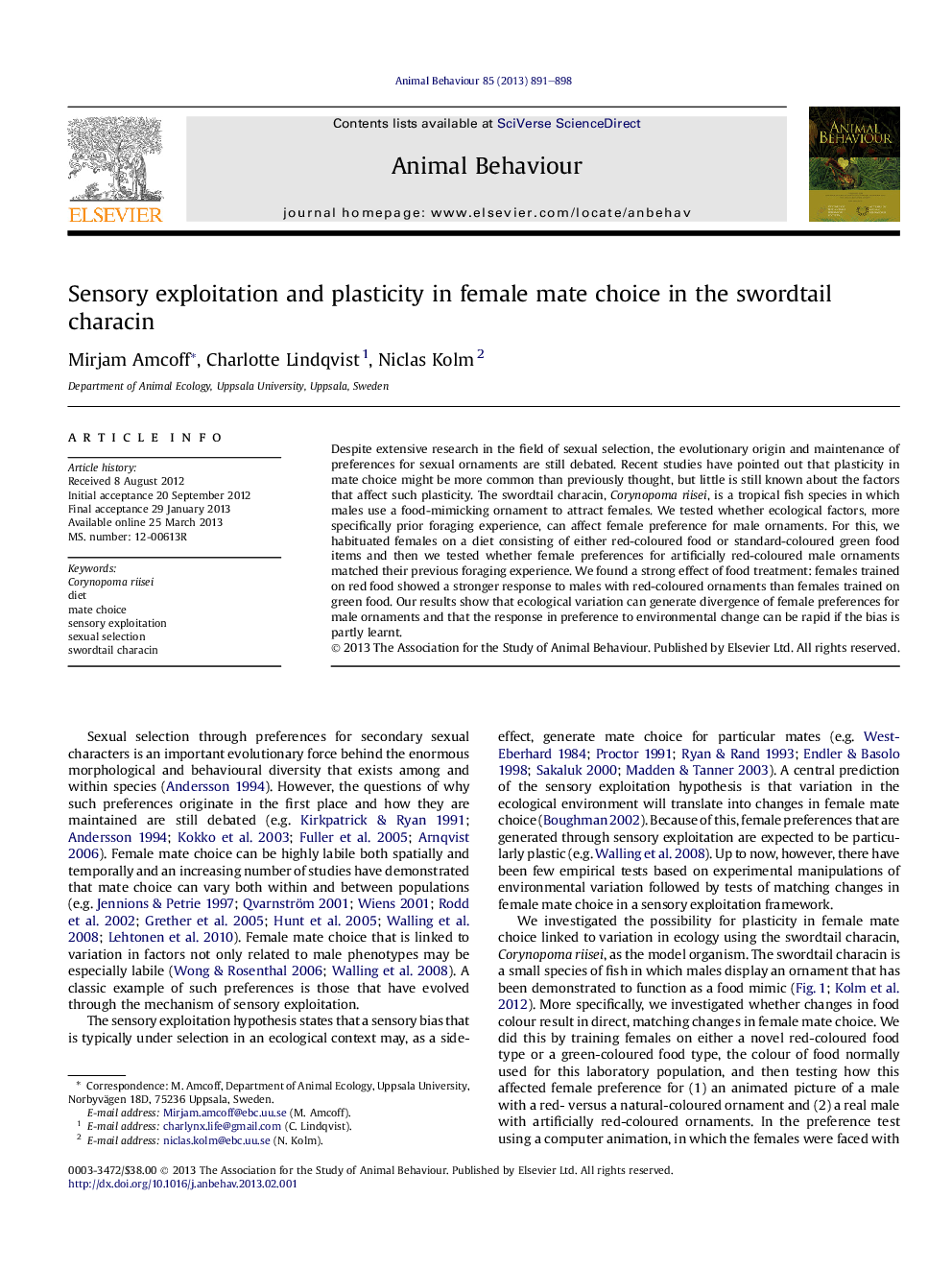| Article ID | Journal | Published Year | Pages | File Type |
|---|---|---|---|---|
| 2416556 | Animal Behaviour | 2013 | 8 Pages |
Despite extensive research in the field of sexual selection, the evolutionary origin and maintenance of preferences for sexual ornaments are still debated. Recent studies have pointed out that plasticity in mate choice might be more common than previously thought, but little is still known about the factors that affect such plasticity. The swordtail characin, Corynopoma riisei, is a tropical fish species in which males use a food-mimicking ornament to attract females. We tested whether ecological factors, more specifically prior foraging experience, can affect female preference for male ornaments. For this, we habituated females on a diet consisting of either red-coloured food or standard-coloured green food items and then we tested whether female preferences for artificially red-coloured male ornaments matched their previous foraging experience. We found a strong effect of food treatment: females trained on red food showed a stronger response to males with red-coloured ornaments than females trained on green food. Our results show that ecological variation can generate divergence of female preferences for male ornaments and that the response in preference to environmental change can be rapid if the bias is partly learnt.
► Female C. riisei show plasticity in the response to a food-mimicking male ornament. ► Introduction of a novel food type changes female preference for the male ornament. ► Changes in female preference occurs fast, after only 10 days on novel food type.
